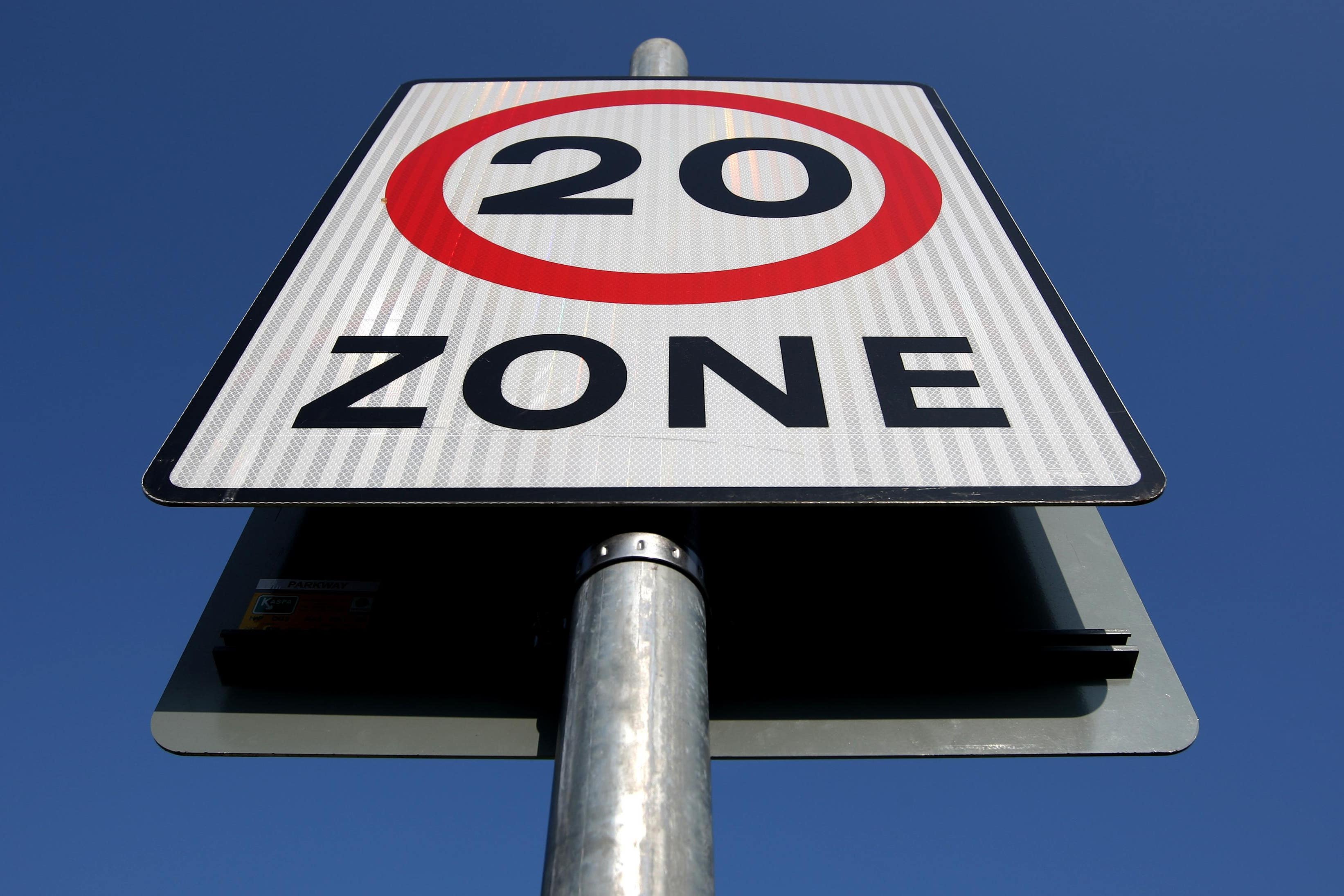Don’t rely on sat navs when speed limits are lowered, drivers warned
The RAC said motorists should ‘pay full attention’ to signs rather than electronic devices after the change is made.

Your support helps us to tell the story
From reproductive rights to climate change to Big Tech, The Independent is on the ground when the story is developing. Whether it's investigating the financials of Elon Musk's pro-Trump PAC or producing our latest documentary, 'The A Word', which shines a light on the American women fighting for reproductive rights, we know how important it is to parse out the facts from the messaging.
At such a critical moment in US history, we need reporters on the ground. Your donation allows us to keep sending journalists to speak to both sides of the story.
The Independent is trusted by Americans across the entire political spectrum. And unlike many other quality news outlets, we choose not to lock Americans out of our reporting and analysis with paywalls. We believe quality journalism should be available to everyone, paid for by those who can afford it.
Your support makes all the difference.Drivers are being warned not to rely on sat navs for the speed limit on Welsh roads when a cut from 30mph to 20mph is imposed from Sunday.
The RAC said motorists should “pay full attention” to signs rather than electronic devices after the change is made.
First Minister Mark Drakeford said the speed limit reduction will protect lives and save the NHS in Wales £92 million a year.
Pay full attention to all road signage
Most roads in Wales that are currently 30mph will become 20mph, although councils have discretion to impose exemptions.
There have been reports of the new signs being defaced in areas including Conwy, Gwynedd, Newport, Torfaen, Wrexham and Flintshire.
The Welsh Conservatives, who are opposed to the rollout, have cited Welsh Government documents that estimate the cost to the country’s economy of increased journey times from lower average vehicle speeds at anywhere between £2.7 billion and £8.9 billion.
On Thursday, Commons Leader Penny Mordaunt said having such a 20mph limit as the default for many roads is “crazy”, after acknowledging there are circumstances where it is a good idea.
RAC head of policy Simon Williams said: “It’s vitally important that drivers are fully aware of the arrival of the 20mph limit in Wales, and pay full attention to all road signage.
“And, until sat nav systems have been fully updated, they shouldn’t rely on them to know what the speed limit is on any particular stretch of Welsh road.”
Mr Williams said compliance with 20mph limits is “quite poor” and it would be “more effective to target areas where they are most needed” such as on residential roads or in areas where there is high footfall.
He added: “Even if compliance with new 20mph limits is poor, it should lead to an overall reduction in speeds which will have a positive effect on road safety.”
Mr Drakeford told BBC Breakfast: “It is a major change. It will need time to bed in.
“It is not a change that is being introduced in order to make life difficult for people and therefore the enforcement authorities will approach it in that way.
“(They are) very well used to doing it, (they) enforce speed limits of all sorts in every part of Wales.
“The approach will be a reasonable one in which we give people a chance to get used to the new regime.
“And then, as the police say, people who flagrantly and deliberately are not prepared to obey the rules that everybody else will be following, then that will be a different matter.”
He added that there is “incontrovertible” evidence that “driving more slowly in built-up urban areas saves people’s lives”.